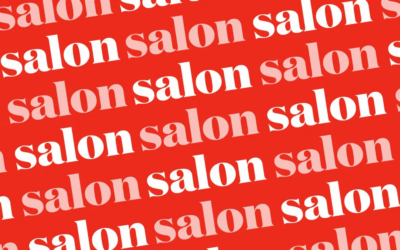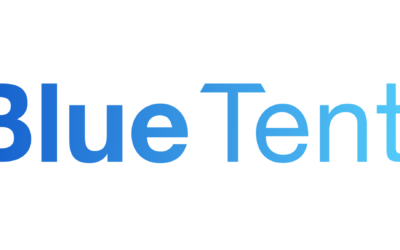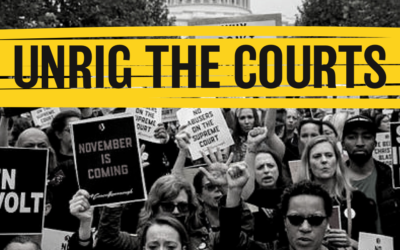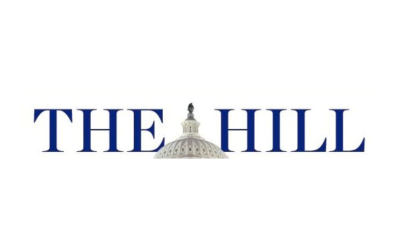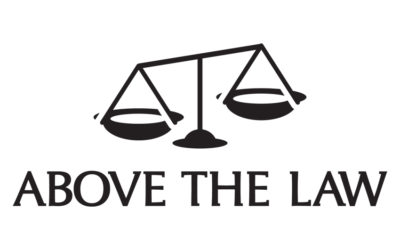OUR APPROACH
After a half century of work, the conservative legal project has paid off: our legal system almost exclusively serves corporate power and the interests of the far-right. At every turn, the legal system seems to thwart the collective power of everyday people.
We know that the legal profession is at the root of the problem, and thus it must also be at the core of the solution.
At PPP, we aim to make clear that the practice of law is inherently political. When you enter the profession you choose a side. You can be on the side of the pro-corporate forces fighting against progress, or you can be on the side of the people.
We equip our organizers to choose the side of the people, and develop and execute campaigns to build a better legal system. Our organizers support the nominations of pro-people state court judges; hold lawyers accountable for deploying coercive contracts in service of corporate power; work to open the courthouse doors to working people; campaign to ease the financial barriers for students who pursue pro-people legal careers; and more.
By successfully engaging organizers in these campaigns, we achieve three things:
1.) There are meaningful and immediate changes made to how the legal system works.
2.) The relationships formed through this work empower organizers to question the dominant norms of the legal academy and profession and stay on a pro-people career path.
3.) Organizers learn to see their role as lawyers as part of a larger fight for justice. They understand how to effectively use their legal knowledge and skills in solidarity with and in service of the broader community.
In this way, we are doing the long-term organizing work needed to achieve our ultimate goal: a legal system that works for working people, not corporate America.
ready to unf*ck the law?
Doing the work of unrigging our legal system is going to take a true movement for change within the legal profession. Are you ready to be part of it?
OUR PRIORITIES
WORKER POWER
When pro-corporate forces run our legal system, working people are left to pay the price. Because the consequences of our rigged legal system fall most heavily on working people, our we center worker power as a core tenant of our efforts.
PPP has been fighting coercive contract terms, like forced arbitration clauses and non-compete “agreements” since our founding. Our campaigns have led to thousands of workers being freed from forced arbitration clauses, helped build momentum for passage of the Forced Arbitration Injustice Repeal Act, and raised awareness about the role lawyers play in using the fine print of contracts to harm workers and consumers.
Through our chapters, we’re building communities that fight the corporate capture of the legal profession. Too often, law students and young attorneys are told that regardless of their values, Big Law is the best place to start their career. By exposing law students to economic justice lawyers, particularly in the plaintiffs’ bar, supporting campaigns to make this work more accessible (e.g., improving loan forgiveness options and creating more accessible information about pro-worker and pro-consumer lawyering), and raising awareness about the harm caused by corporate lawyers, we’re ensuring that law students who enter law school wanting to fight for economic justice leave doing that work.
FEDERAL JUDGES
We work to ensure that as many pro-people lawyers become judges as possible. This began with changing the public conversation, setting the standard for what a progressive judicial nominee looks like.
We’re proud to have worked with and supported multiple fantastic lawyers who have successfully been nominated and confirmed to the federal bench.
We’re equally proud to continue to hold the Biden administration accountable for putting pro-people judges on the bench, advocating for more pro-people judges at every turn.
As we work to ensure there are more pro-people judges on the bench, we are changing what justice looks like in the short term. Equally importantly, we are changing the culture of the legal profession to one in which law students and young attorneys recognize that a career in public interest will open—not close—doors.
STATE COURTS
The vast majority of individuals who interact with the legal system will do so through the state court system. And for as long as the federal judiciary remains in the control of far-right reactionaries with too much power, state courts will seem to be a more viable path for litigation that advances the rights of the American people.
However, without adequate democratic engagement, these courts are also at risk of experiencing a crisis of legitimacy and being fully captured by the same forces that have taken control of the federal courts. We recognize that we must increase the public’s oversight of these courts, in order to ensure that state judiciaries are accountable to the people.
At PPP, we’re taking a four-pronged approach to building this democratic engagement with state courts nationwide:
1. Raising awareness about what state courts are, what they’re doing, and why it matters.
2. Building a pipeline of pro-people law students and lawyers who see service on the bench as a plausible path for a to pursue, and who have the training, network, and other support necessary to do so.
3. Supporting on-the-ground campaigns for judicial accountability. We work with our organizers and other allies to hold accountable pro-corporate and pro-carceral judges and judicial candidates, and to build community-led movements to push for a better vision of justice.
4. Working with the Center for Community Alternatives, we’ve built the State Courts Organizing Network, which unites grassroots organizations and activists nationwide to influence judicial selection and shift judicial decision-making at the local level. Through this network, we’re building a community of grassroots leaders who can share best practices and resources, learn from one another, and collaborate to build stronger state courts across the country.
FEDERAL COURT REFORM
The federal judiciary, led by the Supreme Court, is the most significant barrier to progress that we face. Regardless of how much is achieved by Congress and the President, the Supreme Court stands to strike it down, narrow it, or otherwise prevent the American people from reaping the benefits their elected officials won.
In the short-term, there are key things that can be done to ameliorate this risk. This includes nominating and confirming pro-people judges and expanding the size of the Supreme Court in order to restore balance after years of illegitimate power grabs by the far right.
However, this alone is not enough. The Supreme Court is a fundamentally reactionary institution. It lacks democratic legitimacy, and its record makes clear the consequences of concentrating immense power in the hands of unelected, unaccountable elites. We’re fighting to wrestle back power from the federal judiciary—principally the Supreme Court—and put it in the hands of democratically accountable actors, where it belongs.
To do this, we’re taking on three key roles in the effort to disempower the courts:
1. Bringing people together to build workable strategies to disempower the justiciary, prioritizing those that have the potential to have popular support amongst both leaders and the grassroots.
2. Playing a critical thought leadership role, ensuring that the power of the courts—the power it has now, and the questions as to what power it should have in the future—is at the center of every conversation about the progressive project.
3. Building a movement, in partnership with allies and our organizing base, to fight for concrete power-shifting reforms that put power back in the hands of the branches of government with true democratic legitimacy.
Through this work, we aim to alleviate harm in the short term while working with progressive allies and people around the country so that we don’t find ourselves confronting a rogue, anti-democracy court every few decades.
The latest
Watch Now: PPP Op-Ed Training
There’s a lot going on when it comes to the American judiciary. In less than two weeks, confirmation hearings for Judge Ketanji Brown Jackson, the first Black woman nominated to the Supreme Court, will begin. It’s an incredible moment, and it’s critical that we show...
In the News: Why Clarence Thomas’ wife is a major problem for the Supreme Court
Jon Skolnik writes in Salon: Progressive advocacy groups are calling on Supreme Court Justice Clarence Thomas to recuse himself from cases relating to the activism of his wife, Ginni Thomas, a prominent conservative operative whose political activities, the groups...
In the News: On the Courts, the Battle to Confirm Jackson is Only the Beginning
Trip Brennan writes for Blue Tent: “...the right-wing takeover of the courts is also a story of liberal failure. Part of that failure was an inability to recognize key differences between the right and left when it comes to building power; groups that attempted to ape...
PPP Tells Congressional Progressive Caucus: Cosponsor and Advance SCOTUS Expansion Bill
As the Senate begins the process to confirm Judge Ketanji Brown Jackson to the Supreme Court, progressive court reform leaders of the Unrig the Courts coalition are calling on every member of the Congressional Progressive Caucus to cosponsor and help to advance the...
In the News: The first Black woman appointed to the Supreme Court will be extraordinary, but she can’t save the Supreme Court
PPP’s own Tristin Brown, with Tamara Brummer and Meagan Hatcher-Mays, writes for The Grio: Representation is important, but it is not enough when the institution that the first Black female justice is entering is broken. If we are to see the fullness of this historic...
In the News: Biden Supreme Court pick seems likely to make progressives happy
Hanna Trudo writes for the Hill: “There’s general agreement that we don’t need someone who’s been a management-side attorney on the Supreme Court,” said Molly Coleman, executive director of People’s Parity Project, without mentioning Childs by name. “That’s not an...
In the News: Progressives Urge Biden to Nominate Justice on Side of Workers, Not Corporations
Julia Conley writes for Common Dreams: Tristin Brown, policy and program director at People's Parity Project—a network of law students and lawyers "organizing to unrig the legal system and build a justice system that values people over profits"—told The Hill that...
In the News: Clyburn’s favorite for high court faces scrutiny over corporate work
Harper Neidig writes for The Hill: Tristin Brown, the policy and program director at People’s Parity Project, a progressive network of law students and young lawyers advocating to reform the legal system, said that past corporate legal work should be carefully...
In the News: Everyone’s Got Something To Say About Justice Stephen Breyer’s Retirement
Staci Zaretsky of Above the Law quoted People’s Parity Project’s Policy & Program Director Tristin Brown: “We applaud Justice Stephen Breyer for making the decision to retire and allow President Biden the opportunity to carry out his promise of nominating the...
Thanks to the Congressional Progressive Caucus for Endorsing Supreme Court Expansion
Today, the Congressional Progressive Caucus endorsed the Judiciary Act of 2021, which would restore balance to the Supreme Court by adding four seats to protect our most sacred rights from the right-wing supermajority appointed to the bench by Donald Trump. Folks, we...

